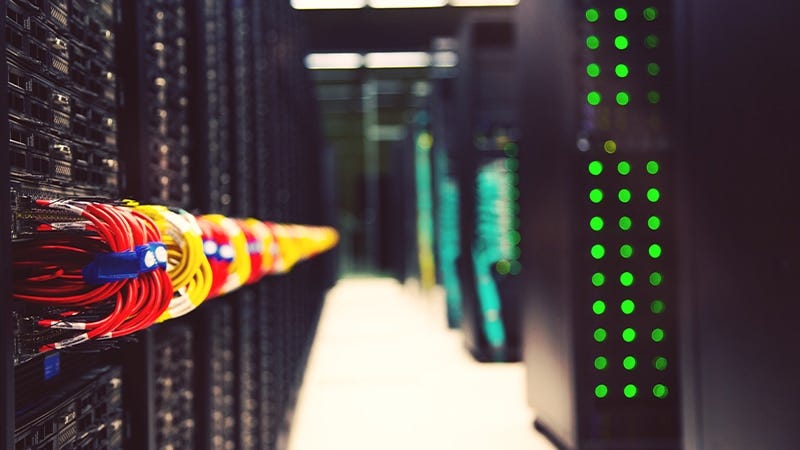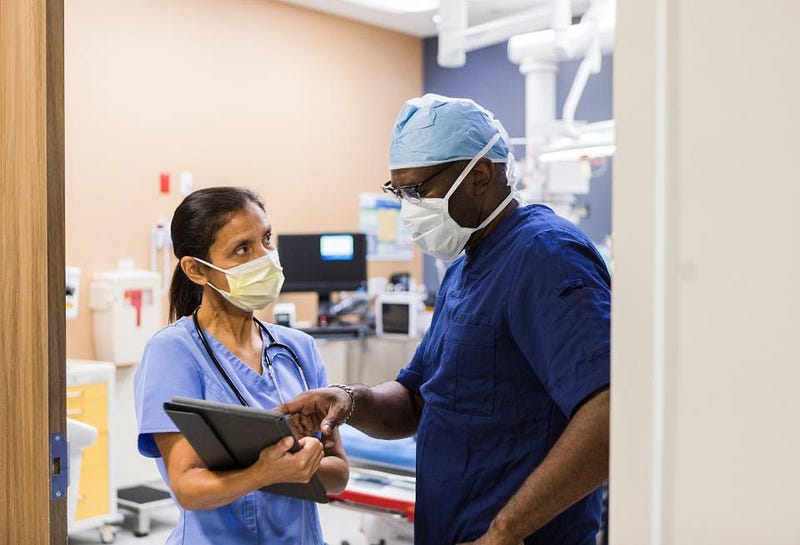The Future of AI in Medical Diagnosis: Opportunities and Challenges
Written on
Chapter 1: AI's Impact on Healthcare
The emergence of advanced systems known as expert systems has been a topic of conversation for years, but we are now witnessing their actual implementation. The push to integrate large language models (LLMs) into mobile devices is underway. How can these models enhance consumers' abilities to diagnose and manage their health? The healthcare sector is undergoing a transformation fueled by artificial intelligence (AI). Recently, there’s been an increased focus on employing AI for medical diagnostics, drug discovery, and clinical services. AI-enabled systems are being designed to sift through extensive medical data, uncovering patterns and predicting health issues. Presently, generative AI is adept at conveying medical information clearly to the general public.
Emad Mostaque, the founder and CEO of Stability AI, shared insights during the Goldman Sachs 2023 Disruptive Technology Symposium in London, stating, “We have discovered a way to scale human capabilities.” He made several forecasts regarding AI’s imminent influence on various sectors, including entertainment, education, healthcare, and the IT industry. He noted Google’s advancements in refining its language model for medical inquiries, asserting, “We now possess a singular file that matches human doctors in capability.”

Credit: Goldman Sachs 2023 Disruptive Technology Symposium in London
Mostaque illustrated the recent accomplishments of AI technology, referencing its role during the COVID-19 pandemic when an AI-driven meta-study on mask effectiveness informed better health policies. On a personal note, he recounted how he utilized AI to conduct a literature review when his son was diagnosed with autism, which provided him with new strategies for support. He highlighted that a staggering 41% of new software code on GitHub is now generated by AI.
While acknowledging the potential of AI to enhance efficiency and productivity, Mostaque also recognized the accompanying challenges. He warned that the disruption caused by AI could be more significant than that experienced during the pandemic, raising concerns about job security in fields previously thought to be safe.
Chapter 2: Understanding Precision Medicine and Virtual Care
AI-driven virtual-first precision medicine represents a cutting-edge approach to healthcare that considers individual differences in genetics, environment, and lifestyle in diagnosing and treating illnesses. This method aims to ensure that patients receive the most appropriate treatments at the right time.
The term "virtual first" emphasizes the importance of telehealth as the primary means for patients seeking medical assistance. Rather than visiting physical healthcare facilities, patients can engage with professionals remotely via digital tools like video conferencing or messaging platforms. AI is integral to this model, employing algorithms and machine learning to analyze extensive patient datasets, which include genetic data, medical histories, lifestyle choices, and treatment results. This analysis helps identify trends and predictive models that facilitate more accurate diagnoses and personalized treatment plans.

Credit: Stanford HAI
The synergy between AI and virtual care allows healthcare professionals to remotely gather and evaluate patient information, monitor health status, and offer timely guidance. This integration can enhance healthcare delivery's efficiency, accessibility, and quality by tailoring treatments and minimizing unnecessary in-person visits.
The potential advantages of utilizing AI in medical diagnostics are numerous. AI systems can process vast datasets that would overwhelm human practitioners, aiding in the identification of rare or complex conditions that traditional methods might miss. They can also provide second opinions, contributing to more accurate diagnoses. Many experts contend that AI holds the promise of transforming medical diagnostics, potentially surpassing human accuracy and reducing misdiagnoses.
However, the reliance on AI for medical diagnosis isn't without risks. The effectiveness of AI systems is contingent upon the quality of the data they are trained on; inaccurate or incomplete data can lead to erroneous predictions. Furthermore, biases inherent in AI can result in misdiagnoses.
Trust in AI systems among healthcare providers is a gradual process and tends to build over time as they gain experience and observe successful outcomes. Rigorous clinical validation and testing of AI systems can bolster physicians' trust. Transparency in AI algorithms and their decision-making processes is crucial, as it allows healthcare professionals to comprehend and trust the technology. Establishing ethical and legal standards is also vital for maintaining patient privacy and data security.
In summary, while AI represents a promising frontier in medical diagnostics, awareness of its potential risks and limitations is essential. It’s critical to understand that AI should complement, not replace, the expertise of human doctors. Ultimately, AI in healthcare is more of an opportunity than a threat.
Description: Exploring whether ChatGPT can provide accurate medical diagnoses.
Description: Discussing the role of artificial intelligence in medical diagnostics and its future implications.